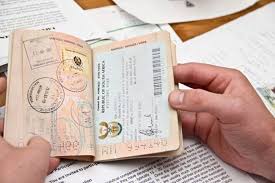The Zimbabwe Revenue Authority (ZIMRA) has started implementing the measures outlined in the budget by Finance Minister Mthuli Ncube. The Minister said these measures aim to support retailers and prevent them from facing unfair competition from informal traders. One of the actions taken by ZIMRA is prohibiting companies that are not registered for Value Added Tax (VAT) from purchasing goods directly from wholesalers. This step is intended to create a more balanced and fair business environment for retailers in Zimbabwe. The measures in the Finance Act are summarised as follows:
Manufacturers are authorised to supply Wholesalers only.
A: The wholesaler must: a) Have a wholesale licence b) Be registered for VAT; c) Have a valid tax Clearance Certificate;
B: Wholesalers which are not VAT registered and do not have a current tax clearance certificate and retailers are no longer allowed to purchase goods from a manufacturer.
C: There is no limit of the value of goods that can be purchased.
Wholesalers must supply:
1. Retailers
A: The Retailer must: a) Have a retail licence b) Be registered for VAT; c) Have a current tax Clearance Certificate;
B: There is no limit of the value of goods that can be purchased.
- Any other person which includes: a) Retailers not in 1 above i.e. not registered for VAT. b) Informal traders c) Individuals
- Purchases from the same wholesaler should not exceed USD1,000.00 (or its equivalent in ZWL at the auction rate of exchange that prevailed on the date of the purchase) in a period of not less than 30 days; and
-
Produces a receipt of goods purchased from the same wholesaler that is dated no earlier than 30 days from the date of the last purchase
-
Any person who purchases for the first time from that wholesaler in any calendar year, or if the person concerned cannot produce a receipt in proof of a previous purchase from the same wholesaler, such person can only purchase goods not exceeding USD20.00 (or its equivalent in ZWL at the auction rate of exchange prevailing on the date of the purchase).
NB:
1) The wholesaler shall retain all copies of receipt produced in proof of previous purchases for a period of at least 3 years, or may scan and store such data in digital format in a manner approved by the Commissioner.
2) A wholesaler who was not operating a facility for the purchase of goods by a person other than a registered operator under the conditions as specified in the table above before the 1st January, 2024, shall not avail such a facility after that date without the leave of the Commissioner in writing.
An “informal trader” is defined in the Finance Act as an individual who carries on a trade for his or her own account but is not a registered operator without limiting the generality of the term, includes—(a) a hawker or street vendor; and (b) a person who sells articles at a place commonly known as a “people’s market” or a “flea market”; and (c) the operator of a tuck shop, that, one who sells good on premises, including residential premises, not licensable by the local authority for the sale of goods on a regular basis; (d) any intermediary for any informal trader or informal traders generally who buys goods from a manufacturer or wholesaler and sells them to informal traders;
Registrations are being done through Kiosks or self-service centres at ZIMRA offices and there after a Tax Clearance Certificate (ITF263) can be issued.
SOURCE : PINDULA










